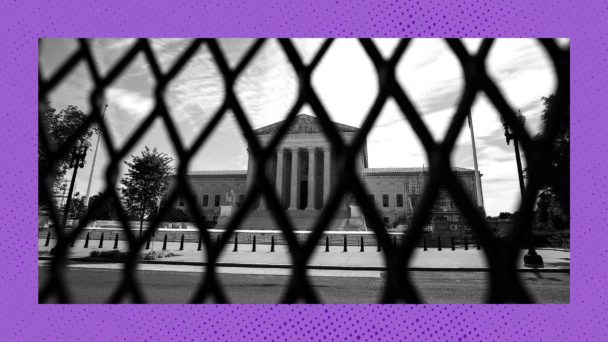In July 2020, Detective Jacquelyn Thomas got a grand jury to indict Desmond Green for a murder he did not commit. During her investigation, Thomas relied on an uncorroborated statement by a jailhouse informant that conflicted with other available evidence, and directed the informant to pick Green out of a photo lineup after he had originally identified someone else. The informant later admitted that he was high on meth at the time he gave his statement, and made it up in efforts to help himself get out of jail.
Yet on this flimsy basis, Green was arrested and detained at Hinds County Detention Center in Mississippi—a facility plagued by violence and infested with rodents and snakes—for nearly two years, where he was served moldy food and forced to sleep on the floor. Green was finally released in April 2022 when prosecutors dropped the case. The following year, he sued the various government actors, including Thomas, whom he believed were responsible for his plight.
Thomas moved to dismiss the suit, claiming that she was protected by qualified immunity, a legal doctrine that prohibits people from suing certain government agents for violating their constitutional rights unless their conduct violates “clearly established law.” The concept was first introduced by the Court in 1967, when it held in Pierson v. Ray that police officers could defend themselves by asserting that they were acting “in good faith and with probable cause” pursuant to a valid statute. Since then, judges have greatly expanded the doctrine and used it to shield police officers from accountability for all manner of abuses, including murder and sexual assault.
But, surprisingly, that is not what the judge in Green’s case did. Instead, Carlton Reeves, a federal district judge in Mississippi, denied the detective’s motion to dismiss, determining that Thomas wasn’t entitled to qualified immunity because her actions violated clearly-established law. And, importantly, he went further: “Even if this were not the case, the detective’s quest would fail. For qualified immunity has no basis in law,” he wrote.
A few things allowed Reeves to take this extra step. First, Green argued both that Thomas was not entitled to qualified immunity, and that qualified immunity is itself unlawful. Reeves has been fiercely critical of qualified immunity for years: Four years ago in Jamison v. McClendon, for instance, he detailed the “harm done to the nation by this manufactured doctrine,” but stated that he was “required to apply the law as stated by the Supreme Court.” In Jamison, he granted the police officer’s request for qualified immunity, but urged the Supreme Court to “waste no time in righting this wrong.” In the present case, since Green pitched him directly on the question of qualified immunity’s constitutionality, Reeves was able to swing for the fences.
Second, Reeves made clear that he wasn’t alone. “Justices, judges, advocates, and scholars have long found fault with qualified immunity,” he wrote. He resurfaced many of these arguments in his order: Qualified immunity isn’t in the Constitution’s text. The judicial invention of qualified immunity short-circuited the political process—a dig at the reasoning the conservative justices used in Dobbs to overturn the right to abortion in 2022. And the doctrine privileges government officials at the expense of all others. “It cannot be true that in America, it is easier to take away one’s liberty than hold the government accountable for violating the very Constitution guaranteeing that liberty,” Reeves wrote.
And third, let’s be real: Reeves had the gumption. He wrote plainly about how qualified immunity was created “as a backlash to the Civil Rights Movement” and continues to function as a tool of racism. “We know which people disproportionately bear the brunt of the doctrine,” he said. He also directly called out the Supreme Court for abandoning precedent without reasons as strong as those that justify jettisoning qualified immunity.
This combination of frankness, courage, and a deep understanding of racial justice is all too rare in legal opinions. Judges appointed by Republicans are taking every opportunity to change legal doctrine for the worse. It’s refreshing to see judges appointed by Democrats actually take a chance to change legal doctrine for the better.






